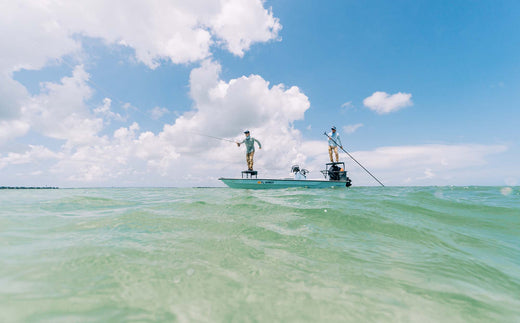
The Many Houses of Mill
Words by Ryan Brod | Photos by Dave Fason
Let’s say you’re a tarpon. Not some backcountry baby hiding beneath mangroves but a full grown, one-hundred-fifty pounder, back as wide as a football. You’re forty, fifty years old, familiar with banks and channels of the Florida Keys, since they’re part of your annual migration. Even though your stay is temporary, and resident sharks want to eat you, you’ve got to eat, too: mullet, pinfish, shrimps, crabs, worms. You’ve also grown familiar with strange offerings that fall from the sky—black, or tan, or chartreuse—some of which move too fast or swim toward you or sink unnaturally. These days such offerings appear at every corner. But sometimes there’s a perfect little morsel just out of reach, skittering away and you just cannot help yourself, so your oversize eyes nearly cross as you hunch beneath it, then you lunge upwards to grab the snack except: it’s not a snack at all, and then you’re in the air, trying to rid yourself of your mouth’s strange sting. If you’re a tarpon who’s been around a while, traveling myriad edges and banks, occasionally feeding and sometimes making a mistake about what you feed upon, there’s a good chance you or someone you know has met Andy Mill.
In the eyes of many guides and anglers, Andy Mill, age 69, originally from Aspen but having fished and hunted across the globe, is considered one of the greatest fly anglers in history. His accolades support such bold claims: more invitational tarpon fly tournament wins than anyone, including five prestigious Gold Cups. One of three anglers to ever win tarpon, permit and bonefish fly tourneys. According to many, there’s never been anyone who can feed tarpon a feathered hook better than Mill.

Before fly fishing dominated his life, Mill was a well-known TV-show host; before that a broadcaster; and, before that, an elite downhill skier who competed at the 1976 and 1980 Winter Olympics.
“One came up behind my fly,” Mill recalls, “and then my fly grabbed a bit of sargassum grass, so I just started shaking my rod tip. I was young and innocent but I knew something was about to happen. With a big open mouth that tarpon came up and ate the whole thing. I’ll never forget that image.”
Around forty years ago, Mill caught his first tarpon on a fly, an oceanside fish near Islamorada. “One came up behind my fly,” Mill recalls, “and then my fly grabbed a bit of sargassum grass, so I just started shaking my rod tip. I was young and innocent but I knew something was about to happen. With a big open mouth that tarpon came up and ate the whole thing. I’ll never forget that image.”
Since that life-changing bite, Mill estimates he’s fished for tarpon on average 40 to 50 days a year, working with some of the game’s top guides along the way. Mill established himself as one of the prominent voices in tarpon fly fishing, given his vast on-the-water accomplishments, particularly his prowess at feeding and fighting massive, difficult fish, for winning tournaments, and for producing his 2010 best-selling book, A Passion for Tarpon.
An accomplished elk hunter, too, Mill spends his falls in the high country of Colorado, bow in hand, often accompanied by his middle son. And it was his middle son, Nicky, now 27, who dreamt up the podcast; one that archived stories from living outdoor icons, many of whom were getting on in age. He knew his father was well-connected in the fly fishing and hunting worlds—after all, Andy introduced him to elk hunting, and fly fishing for giant tarpon. So two years ago, without much journalistic experience, Nicky convinced his father to help him launch what became the Mill House Podcast. Nearly sixty episodes later, with over four thousand YouTube subscribers, Mill House has become an industry leader in vivid outdoor storytelling, with a focus on conservation and raising awareness about environmental issues facing anglers and hunters alike. It’s through Mill House, and outdoor connections forged in the field, that Andy and Nicky found Duck Camp and became brand ambassadors—an accomplishment both are proud of. Despite offers to work with larger companies, the duo chose Duck Camp for the smaller, family-style connection, and for the ability to grow Mill House alongside the company.


But let’s back up: because Nicky needs his proper introduction.
So let’s say you’re an elk. Not some horny spike chasing every whiff but a real giant, with a rack like thunderbolts frozen to your head, your senses so refined you’ve survived this long among prowling lions and two-legged, upright predators that enter your woods come autumn with bows and rifles. You’re ten or eleven years old, so you’re not fooled by just any bugle echoing through the aspens. Even if you’ve been around a while, seen a thing or two in the high country of Colorado—even with your gift for survival—you don’t want to be upwind of Nicky Mill.
Because as much as he enjoys fishing—which is a lot—Nicky Mill is a hunter at heart. He’ll tell you that—that he likes fishing, but loves hunting. Nicky recalls his Mill House conversation with outdoor icon Flip Pallot, of Walker’s Cay Chronicles fame. They were talking hunting, and senses, and of our hunter forefathers. “We’ve been hunting for thousands of years,” Nicky tells me. “It’s built into our brains, it’s what we’re supposed to be doing.” He feels at home in the mountains with his father and his bow.
“I’ve always understood him,” Nicky says of his father. “I never rebelled against him. I admire and respect what he does and what he’s taught me.”
It’s easy to attribute Nicky’s predatory instincts, his ability to stalk big game in the mountains and on the flats to genetic privilege: his father a former Olympic skier and highly accomplished elk and tarpon hunter himself; and his mother, former world number #1 tennis player, Chris Evert. Talk about hitting the hand-eye coordination jackpot. But speak to Nicky a while, and hear of his own accomplishments, and listen to his father’s proud assessment, and you realize Nicky possesses his own fire, his own unique attributes separate from his parents’.
“My first day hunting, I was fifteen years old, that changed my life,” he recalls. “After that first day, it was all over; I knew this was something I wanted to do, and do well.”
“Everything he does is world class,” his father adds. “Rock climbing, motocross, scratch golfer, won state tennis doubles in high school. Nicky is an old soul. His sense of humor is on another level but he also likes having deep conversations.”
Speaking of conversations: Nicky, who has worked as a fly fishing and hunting guide, among other things, admits that conducting Mill House interviews with iconic outdoorsman does not come easily. “I’m naturally shy,” he admits, “so being mic’d up is challenging. I embrace it even though I’m uncomfortable. You have to adapt and think on your feet. My father, he’s a natural—he’s been on TV his whole life. He’s so comfortable.”
“How do you provoke the likes of Steve Huff, Flip Pallot, Rob Fordyce, Stu Apte, Al Pflueger, and Harry Spear, to name a few—into sharing personal stories and secrets from the wild?”
So how do Andy and Nicky walk into someone’s home, sit down and mic up their guest, then elicit deep, thoughtful conversations? How do you provoke the likes of Steve Huff, Flip Pallot, Rob Fordyce, Stu Apte, Al Pflueger, and Harry Spear, to name a few—into sharing personal stories and secrets from the wild?
The answer seems to be a combination of credibility, kindness, and balance—the elder Mill having earned respect as a key player in the fly-fishing world, and Nicky growing his own reputation, acting as the voice of reason to interject when interviews veer off-course.

“Andy knows how to poke the bear,” recalls Mill House guest Bob Branham, a well-respected, now partially-retired Florida flats guide who was on the platform for Andy’s first fly-caught tarpon. “Andy’s got an insider’s perspective,” Branham says. “He knows what he shouldn’t ask, and then he asks it anyway.”
“And Nicky—we got going in a political direction and then Nicky brought us back on track,” Branham says. “With the two of them present, there’s great balance in the room.” Branham calls the Mill duo highly personable, and says that Andy knows his family and asks of them often. With balance, credibility, and warmth, Mill House plumbs the depths of angling and hunting history, extracting and preserving stories that would otherwise be lost.
Mill House plumbs the depths of angling and hunting history, extracting and preserving stories that would otherwise be lost.
“These podcasts are a big deal,” Branham adds. “We’re not getting any younger. Some of the guys they’ve interviewed for Mill House [Captain Billy Knowles, for example] have already passed away. Mill House brings these stories to life. I’m so happy they’re doing it.”
Andy acknowledges the links in conversation—communicating with big game, and also with his guests. As Andy puts it, “Fly fishing for tarpon is communicating with feathers. It’s the same thing with a big elk—how can we make that animal do what we want? We have to call it, speak to the animal.” With their podcast guests, the Mill duo takes time to listen, to show presence, and to allow space for stories. “It takes a long time to understand timing and comfort to dive into someone’s life,” Andy says. “If you’re not comfortable with who you are, this task is almost impossible.”
As one might imagine, the two occasionally butt heads when it comes to the production side of Mill House.
“I’m proud of what Nicky’s done,” Andy says, “all the editing and marketing. Except for when he doesn’t respect what I have to say in a production meeting, when he doesn’t admit I have a good sense of direction, I think: ‘I used to be a producer. I owned my own show!’ It drives me fucking crazy sometimes.”
“You had a T.V. show a hundred fucking years ago,” Nicky interjects. “This day and age, I have a say in this stuff, too.” They both laugh.
These are the many houses of Mill: backcountry Colorado, stalking big bulls with bows and arrows; turquoise flats of the Florida Keys, hunting giant tarpon with fly rods; and within the homes of their Mill House guests, each of whom has a catalog of stories enough for several lifetimes. The stories intersect and diverge: records are broken, knots hold or break, elk close the distance or remain hung up, just out of range.
Despite their podcast’s success, the duo remains hungry. They want to interview Joan Wulff while they still can, the fly-fishing icon born in 1926. They hope to chat with author Thomas McGuane, who wrote better than anyone about permit and tarpon in the heyday of Key West, before all the angling pressure.
Andy realizes that Mill House brings new faces to the game, that his own advocacy draws participants to an already crowded arena. “There’s friction with the success I’ve had promoting things I love because the beautiful pie is being eaten up,” he says. “That is a personal war I wage; my mind constantly races over this dichotomy. But my love for sharing will never take a back seat to holding my tongue.”
With Mill House preserving stories before they’re lost, Andy is also considering the other end of the age spectrum. This summer, he’ll help curate a junior fly fishing program with the IGFA and Greys, donating fly rods to kids in north Florida and Wyoming who might otherwise never experience the sport.
In the early days of tarpon fishing together, Nicky recalls growing pains. “There was yelling, lots of F-bombs. It was brutal sometimes. I was 12 years old and would throw my rod down. But then, I learned more when I was on the back of the boat, watching my Dad. I’m a visual learner; I had a front row seat.”
And he still does. Andy has stepped away from tarpon tournaments. He got so aggravated when he didn’t win that he started to lose enjoyment. He’s turned his attention to conservation—supporting Bonefish & Tarpon Trust and Captains For Clean Water, among others—and to family. “I’m done [with tournaments],” he says. “Now I just want to go fishing with Nicky.”
When he thinks about spring tarpon fishing, Nicky thinks of “sunscreen, cigars, and rum,” he tells me. He thinks about “that first bite that everyone is waiting for, the jolt of electricity when that first fish opens its mouth.” His father, Andy—once mentor, now outdoor partner and co-host—thinks of super espresso, of running their skiff across chop earlier than anyone. “The light is electric,” Andy says, “and you’re wondering what the day will bring. It’s something I live for. It’s something that keeps my heart young.”
Ryan Brod is an educator, Maine Fishing Guide, and senior contributor at The Drake. His work appears in Gray’s Sporting Journal, The Maine Review, FlyFish Journal, Bangor Daily News, and elsewhere. His first book, an essay collection called Tributaries, will be published next year. He lives in the original Portland.
Follow him on Instagram.

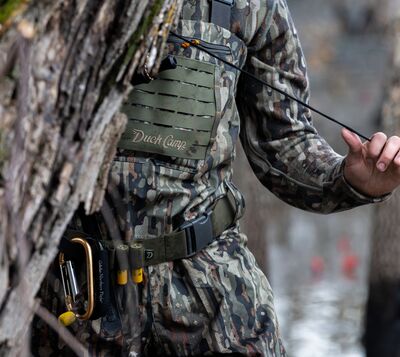
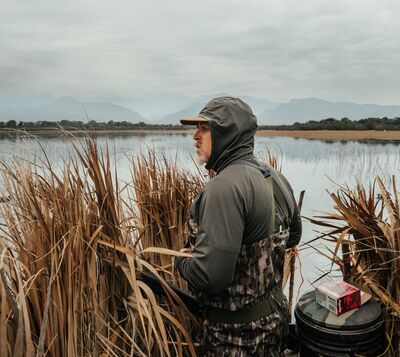
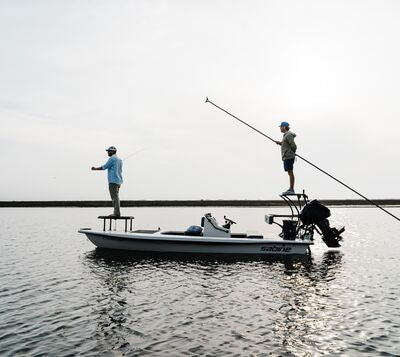
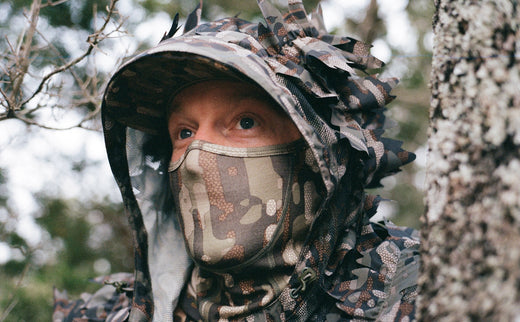
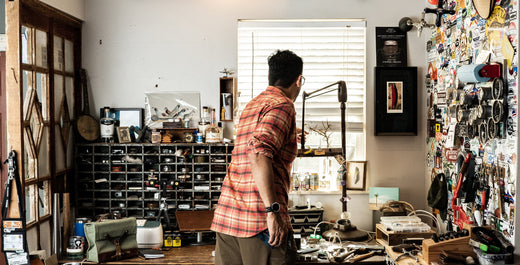

Leave a comment
This site is protected by hCaptcha and the hCaptcha Privacy Policy and Terms of Service apply.